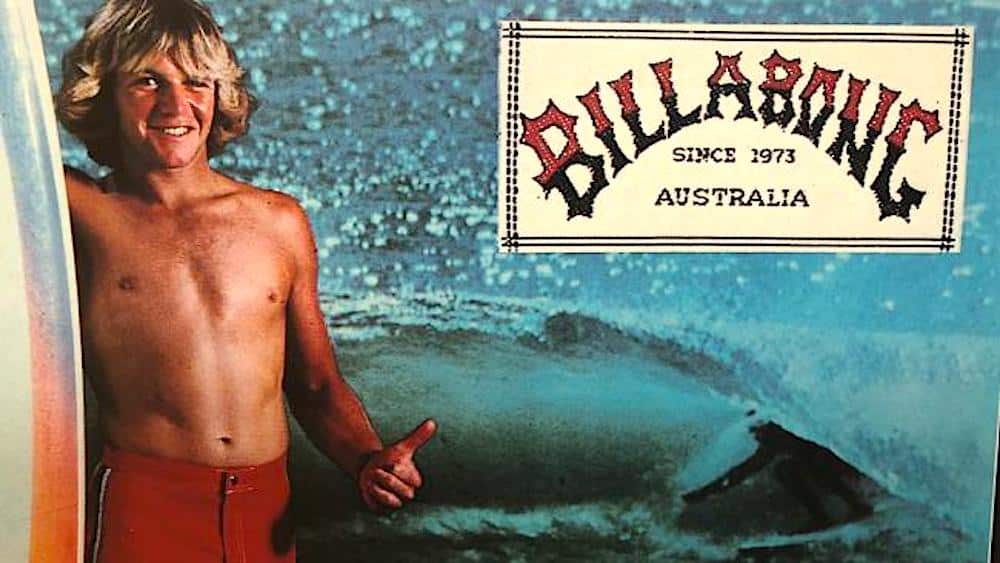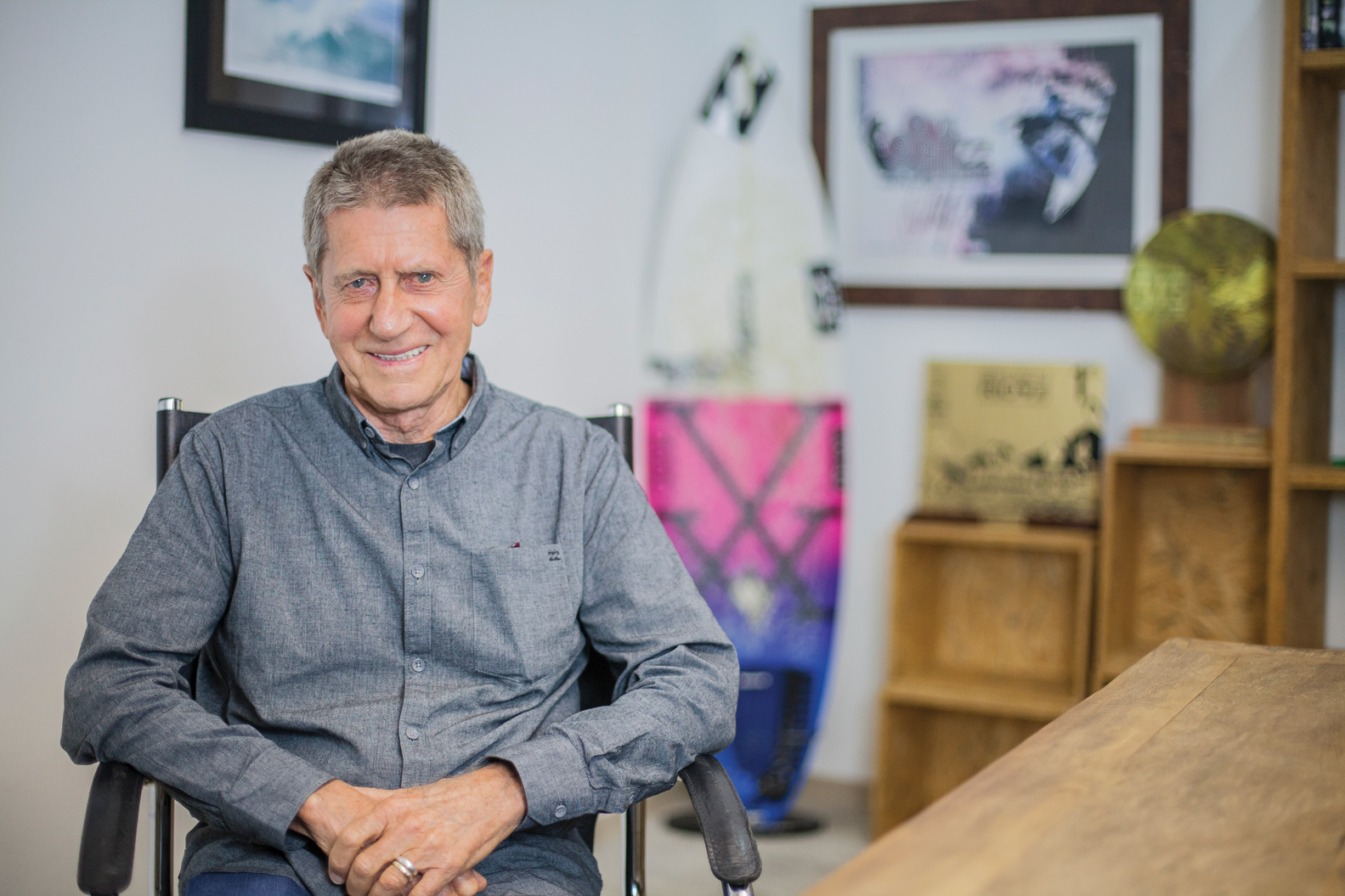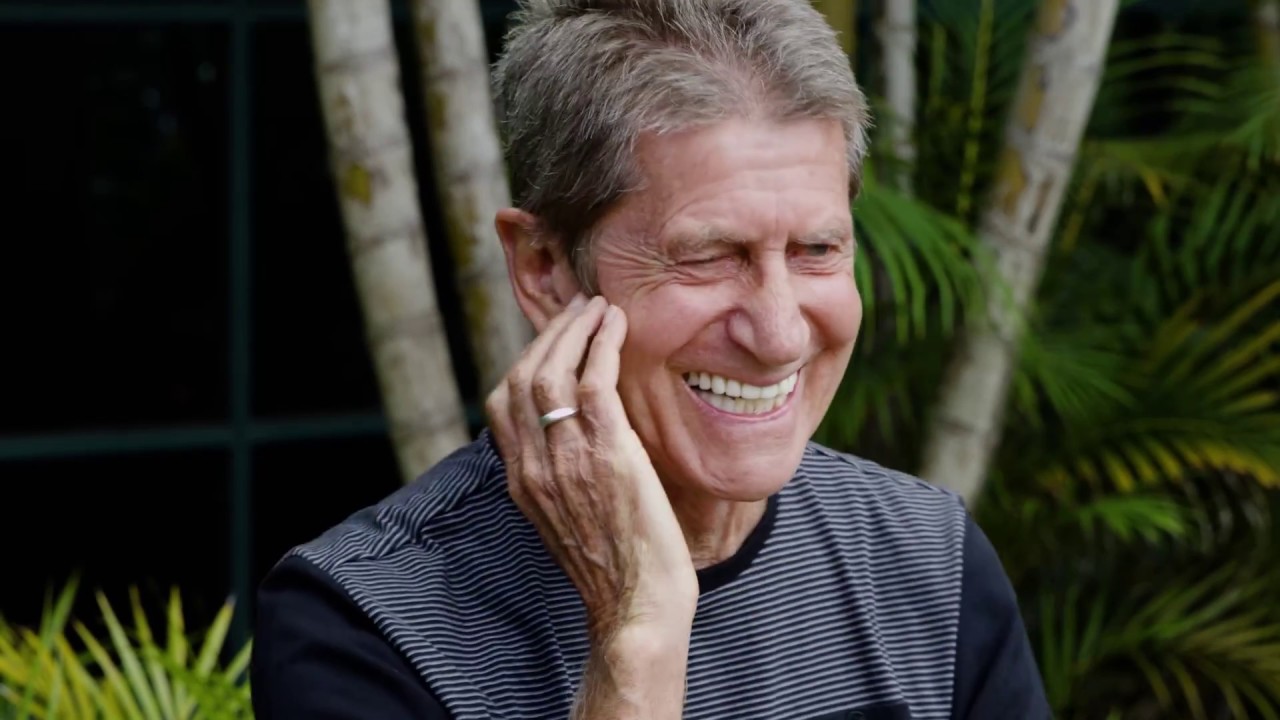Gordon Merchant's Net Worth: What The Billabong Founder Is Worth Today
Can a single individual, through vision and relentless drive, truly redefine an industry and amass a fortune in the process? Gordon Merchant, the founder of Billabong International, is a resounding testament to the affirmative, demonstrating the power of entrepreneurship and the enduring allure of the surf lifestyle.
Born on January 28, 1950, in Western Australia, Gordon Merchant's story is one of humble beginnings and remarkable achievement. He transformed a passion for surfing into a global brand, leaving an indelible mark on the surf wear industry and accumulating a substantial net worth in the process. Merchant's journey isn't just about financial success; it's a compelling narrative of innovation, resilience, and the pursuit of a dream. The fact that Merchant sold Billabong in 2015, after building it for decades, speaks to his foresight, and a willingness to adapt to changing markets.
| Attribute | Details |
|---|---|
| Full Name | Gordon Merchant |
| Date of Birth | January 28, 1950 |
| Place of Birth | Western Australia, Australia |
| Nationality | Australian |
| Primary Source of Wealth | Founder and Major Shareholder of Billabong International |
| Net Worth (Estimated) | Approximately $570 million (AUD) |
| Notable Achievements | Founder of Billabong International, a global surfwear company. Revolutionized the surfwear industry. |
| Career Highlights | Founded Billabong in 1973. Successfully built Billabong into a global brand. Sold the company in 2015. Focused on Australian bioplastics company Plantic. |
| Business Ventures | Billabong International, Plantic |
| Marital Status | (Information not available in the provided text) |
| Philanthropy | (Information not available in the provided text) |
| Reference | Wikipedia - Billabong |
Merchant's impact extended far beyond the financial realm. He recognized the potential of the surf lifestyle and translated it into a highly successful business model. This involved more than simply selling surfboards and swimwear; it was about creating a brand that embodied the spirit of surfingfreedom, adventure, and a connection with nature. The company started with humble beginnings, with Merchant selling surfboards and swimwear out of his station wagon. In 1973, he officially founded the company.
The early years saw Merchant meticulously building the Billabong brand. His dedication resulted in building an enterprise that would eventually become a global phenomenon. This was achieved with consistent branding, product innovation and by tapping into the growing interest in surf culture. The company's growth coincided with the increased popularity of surfing, allowing Billabong to capitalize on the demand for specialized surfwear and accessories.
In 1998, after 25 years building the Billabong business, Merchant had established a dominant presence in the market. The company's success reflected his astute business acumen and his deep understanding of the surf culture. However, the journey wasn't without its challenges. Merchant faced numerous obstacles, from economic downturns to intense competition. Despite these challenges, Merchant persevered, adapting his strategies to remain competitive. He had to navigate challenges in the market, as his net wealth fell by $584 million from $904 million at Billabong's peak in 2007 to $320 million in 2014 after shares crashed.
Merchant's success story also offers lessons about the importance of innovation and anticipating market trends. Billabong's initial focus was on performance-driven products and also stylish apparel. This helped it stand out in a competitive market. In recent years, his focus shifted to Australian bioplastics company Plantici, demonstrating his willingness to explore diverse business opportunities beyond surfwear.
Merchants net worth, primarily derived from his stake in Billabong International, reflects the scale of his success. Recent estimates place his net worth at approximately $570 million. Furthermore, the deals he made such as the one in 2006, where he cashed in his stock for $199.5 million, or later, when he reacquired Billabong shares by spending $98 million indicate a strategic approach to his financial endeavors. The acquisition of the company he didnt yet own valued the business at $10 million. He also sold an Angourie, Northern Rivers investment property. The latest acquisition brings his total stake in Billabong to 100.57 million shares worth about $70 million at the latest trading price. This strategic financial management, combined with the underlying value of Billabong, provides a clear picture of his financial success.
Merchant's influence extends to the real estate market. He recently sold his two-bedroom property furnished for $755,000, a testament to his ability to manage investments strategically. This event highlighted his broader approach to financial management and his willingness to leverage his resources effectively. This sale followed the sale of an Angourie property.
The story of Gordon Merchant is also a story of the creation of a brand, and how that brand reshaped an entire industry. Merchant not only built a successful business, but also helped to define the ethos of a generation. He understood that the value lay not just in the product, but in the lifestyle. This meant he had to consider his companys values and the impact it had on the industry.
The values that underpinned Billabong, and by extension, Merchant's vision, include freedom, adventure, and a deep connection to nature. These values are echoed in the surf culture that Billabong both served and helped to shape. The success of the Billabong brand demonstrated the power of building an authentic connection with its target audience, establishing a lasting legacy.
While the exact inspiration behind the creation of Quiksilver is not directly mentioned in the provided text, the success of Merchants venture undoubtedly contributed to the evolution of Quiksilver and had a profound impact on the surfing industry. The presence of competing companies such as Hurley also contributed to the development of surf culture as a whole. Billabong's influence on the surfing industry is undeniable, inspiring numerous other brands and businesses.
In 2015, Gordon Merchant sold Billabong. The deal was a significant one, and saw Merchant pocket $25.6 million for his 12.3% stake. The sale marked the end of an era, but the legacy of Billabong, and the entrepreneurial spirit of Gordon Merchant, continues to resonate within the surfing world and beyond. His journey from a passion for surfing to the founder of a global surfwear empire is a testament to the power of vision, hard work, and an unwavering belief in one's dream.
While the focus of this article is Gordon Merchant, it is worth mentioning the names of others in the industry like Bob Hurley, whose net worth is estimated at $10 million. The experiences of these individuals also contribute to the fabric of the surf and apparel markets. His story also shares certain similarities with that of Gordon Moore, who has a net worth estimated at $10.1 billion dollars.
In the realm of business, the story of Gordon Merchant stands as a powerful example of how passion, combined with entrepreneurial spirit, can generate extraordinary success. Merchant's commitment to his vision, along with his adaptation and innovation, have cemented his place as a leading figure in the surfwear industry. His legacy serves as a reminder that with determination, any ambition can be transformed into reality. His influence remains, demonstrating the enduring impact of his work in the surf industry.


